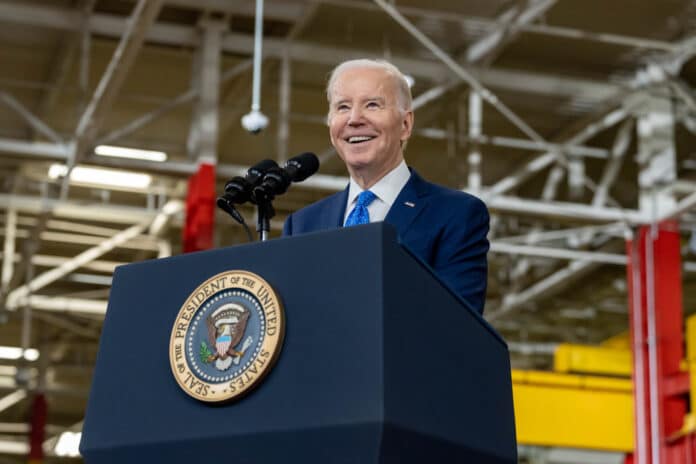
Tax policies should treat everyone fairly. That’s why a federal asset tax, as again proposed by President Joe Biden in his new budget plan, should be rejected. There’s nothing fair about penalizing people for being successful.
President Biden would like to impose a 25% “billionaire minimum tax” on unrealized capital gains of high-net-worth taxpayers. The significant word in this is “unrealized” as that has never been done before. Only income, either earned or gained from a sale of assets, is taxed now.
Under the proposed plan, wealthy people would be taxed on the change in value of assets that are not sold during the tax year, just held. That is essentially the same as saying the federal government could look at the change in assessed value of someone’s home from last year to present and demand a percentage of the increase.
I don’t think any of us would sit still for that and we should not allow the same to be done to other unsold assets. It is blatantly unfair and bad tax policy.
People shouldn’t be punished for being successful and growing wealth. The accumulated wealth of high-income earners, which they invest in stocks, businesses, and other ventures, plays a key role in economic growth. Without investors there are no entrepreneurs. There is no innovation brought to market or jobs created in business expansions. Ideas are the seeds of economic growth, but if those ideas, no matter how innovative or promising, don’t attract investment, they die on the vine.
Wealthy people already pay significant taxes. Our progressive tax code taxes higher-income earners at higher rates, resulting in the top 10% of earners paying one-quarter of all income taxes. In 2020, the top 1% generated over 42% of federal income tax revenue. Taxing their assets, which are typically purchased with money that was already taxed as income, is an unfair double standard.
In Minnesota, a federal asset tax on successful people could hinder job creation by discouraging investment. Why would people who already have more than enough money to live comfortably want to invest that money in new ventures if the assets they build from those investments are going to be heavily taxed by the federal government? We should incentivize wealthy people to participate in the economy and put their money to work. When they do well, so do a lot of other people, from their employees and their families to all the small businesses and service providers that flourish when the economy is strong.
It could also hinder growth in the extremely important Minnesota agricultural sector. Large family farms might have enough value built up in land and other hard assets to qualify the owners for President Biden’s wealth tax, but not have enough cash on hand to pay the bill. They could be forced to sell off land — possibly even to foreign investors such as the many from China who want to increase their holdings here — at fire-sales prices to avoid going into debt to an unforgiving IRS. It’s hard enough as it is to pass family farms down to the next generation. The federal asset tax could be the final blow for young farmers who want to keep the family business going.
The federal asset tax proposal is a real opportunity for Sen. Amy Klobuchar to show her Minnesota constituents that, even though she holds solid progressive values, she is not afraid to vote in her constituents’ best interests. Far-left politicians like Bernie Sanders and Elizabeth Warren, to name a couple, would like nothing better than to see successful business owners punished with extreme taxes on their holdings. But Sen. Klobuchar can stand up, explain why the federal asset tax is a poorly thought-out policy that would hold back the Minnesota and U.S. economies, and respectfully but firmly reject President Biden’s plan. I look forward to seeing her take that stance, as I’m sure so many other Minnesotans would like for her to do as well.
















